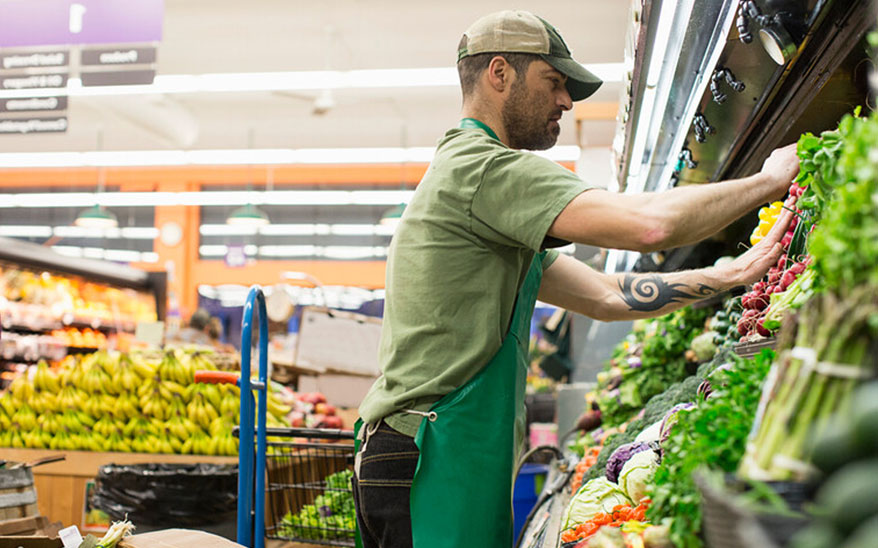Why Modern Retail Demands Cloud-Native Technology
- October 18, 2021
- By Manhattan Staff

Making predictions about the future of retail – or anything – can be a fool’s errand. However, retail as a whole has experienced a period where the future is being thrust upon it at an alarming rate. As that has occurred, plenty of leading indicators have emerged to shed light on what’s essential now, and what may be around the corner.
One place to look is stores. The pandemic forced retailers to push their limits. Contactless payment methods like pay-by-link exploded. The sudden demand for store fulfillment of online orders has added costs for handling and shipping, causing delays in delivery when carriers were stretched beyond their limits. Omnichannel systems, or lack thereof, were tested daily. And during the height of the pandemic, much of this happened without a single walk-in shopper at the store.
Later, the same demand was compounded by the sudden wave of curbside pickups. Then as stores started to reopen, buy online, pickup in-store (BOPIS) orders exploded as well. Stores quickly became hubs for returns of online purchases.
All told, changes that might have occurred over the course of a few years, have happened in months. Consumer expectations for service and speed rose just as quickly, and there is no reason to think they will not continue to gather steam in the near future.
In terms of interactions between brands and their customers, the status quo has been permanently transformed.
97% of retailers expect BOPIS and Curbside Pickup to stay the same or increase.
(Source: 2021 POS Buyers’ Guide)
How is retail changing?
Even prior to 2020, the stores had begun to serve multiple purposes. They were no longer a distinct, isolated channel, but rather, part of the overall brand experience. For some consumers, stores might be the start of a buying journey. For others, they may be a place to pick up orders or make returns. Today, stores are an integral part of the omnichannel experience, playing a different role for each person.
Despite many recent changes, one thing has remained clear: people have not stopped going into the store. While consumers are shopping online more than ever, 48% of US adults report that they purchase products or services in-store at least weekly — and 51% say they do so more often than that. That’s because stores offer extraordinary convenience due to proximity, knowledgeable staff and new, frictionless services.
Will retail as we know it survive?
It is a certainty that retail will survive. It is almost as certain that retail, as consumers have known for decades, is permanently changed. The rise of omnichannel, the surge in online shopping and the explosion of new fulfillment options, have forced retailers to adapt quickly. For those with legacy technology, operational adjustments are happening despite their solutions rather than because of them. That’s because those solutions were designed for retail as it was, not for where retail is going.
Therefore, brands are rethinking the best ways to serve customers who have become accustomed to new, omnichannel conveniences. There is a critical interplay between online experiences and store experiences. But the technology of yesteryear is unable to bridge those two channels. While store teams have performed admirably, scrambling to meet new demands, reliance on outdated technology means experience and profitability have taken hits. The only way to sustain profitability and deliver the experiences customers increasingly demand is with a modern unified omnichannel platform, where point of sale, order management, customer engagement and fulfillment are linked and working in concert.
An increase in the volume of online orders fulfilled from stores has led to reduced profitability for 79% of retailers
72% of retailers are planning to increase store space dedicated to online order fulfillment
(Source: 2021 POS Buyers’ Guide)
91% of shoppers miss shopping in stores, and "getting out of the house" is one of the top three motivators for future store visits.
100% of shoppers miss the instant gratification of store purchases.
(Source: 2020 Shopper Study The New Store Shopper in High-Touch Retail)
Will retail stores exist in the future?
The days of stores being a single, isolated selling channel are over. The physical store must now serve a range of purposes. New omnichannel services are likely permanent fixtures in retail, as shoppers enjoy being able to buy and return items wherever, whenever and however it’s easiest for them. To maintain customer loyalty, offering those conveniences will need to be continued. And to maintain margins, true omnichannel solutions are now critical. Success depends upon embracing new realities with machine learning technology that provides customer insights and services that facilitate seamless, flawless experiences at every point of interaction.
If they haven’t already, retailers must create what used to be considered “stores of the future” in the present. Ensuring competitiveness, profitability and adaptability starts with technology that connects experiences, constantly adds new innovations and arms sales associates with tools to sell, fulfill and engage anywhere.
The future is now
The omnichannel era has arrived and it’s only just begun. For some, that requires a new mindset in their approach to serving customers and store teams. Manhattan Active® Omni is capable of all of the above and its cloud-native, microservice architected technology can help you differentiate your brand, exceed expectations and thrive in an evolving retail environment. It is the industry’s leading omnichannel solution.
To learn more about how Manhattan Active Omni can help you modernize your stores, visit www.manh.com/active/omni





